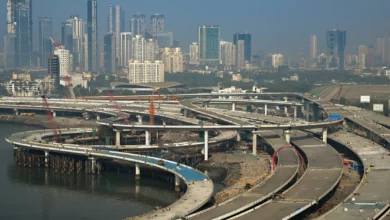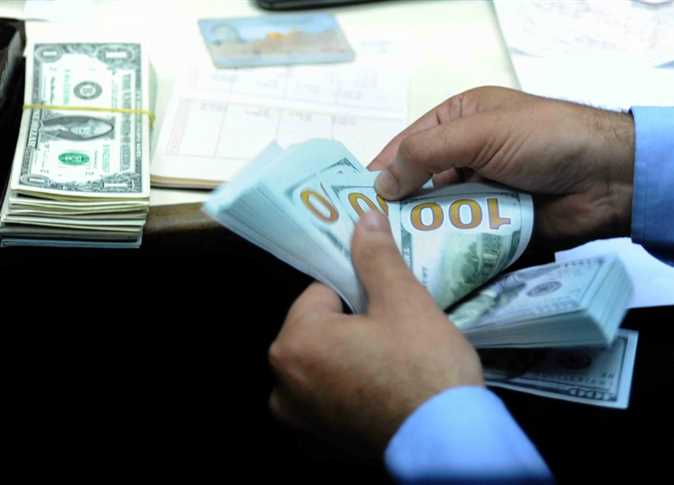As Egypt’s economy sputters through the first post-Mubarak months, many continue to complain about the ousted officials who are still “enjoying the people’s money,” the benefits of decades of corruption.
Although there are no official estimates of how much misappropriated cash is still unrecovered, some estimate it to be hundreds of millions.
On 28 February, a complaint was filed with the attorney general by Mustafa Bakry, a prominent journalist and one of the strongest public figures working against the Mubarak regime, saying that the Mubaraks had secret accounts at Egyptian banks that should be investigated. The complaint stated that former First Lady Suzanne Mubarak had LE147 million stashed away, while the former president’s son Gamal had some LE100 million.
Zakariya Azmy, Mubarak’s former chief of staff, is currently being investigated over the provenance of his own wealth, estimated at LE10 billion, while other ex-officials are suspected of having similar personal fortunes, much of it acquired illegally.
It is also estimated that millions of feddans of state land were sold in corrupt deals to high-ranking officials and businessmen, who then illegally changed the land’s use or sold it for profit.
People have for some time been calling on the ruling Supreme Council of the Armed Forces and Prime Minister Essam Sharaf’s cabinet to ensure the return of all stolen land and money. Some even hope that regaining the pilfered wealth might somehow help the economy.
In a newspaper article in February, prominent Egyptian poet and intellectual Farouk Goweida suggested forming a committee of public figures to work on regaining money siphoned off into bank accounts abroad. Regaining just half of the funds would be enough to help Egypt overcome its current economic crisis, he said.
Since then, Goweida’s hopes have been at least partially realized. Egypt has formed a legal committee responsible for retrieving stolen funds held abroad. The committee is headed by Assem al-Gohary, who heads the government’s corruption investigation organization, the Illicit Gains Authority. The committee's work includes verifying the volume of smuggled money and its type; liquid funds, real estate, hotels or tourism investments. The committee is also attempting to uncover secret accounts and work to bring the money back to Egypt.
There are, in fact, two key methods by which stolen public wealth can be re-couped and fed into the treasury: confiscation and fines.
Any official proven in court to have misappropriated public funds can have such money confiscated, so long as its whereabouts can be identified and it can be accessed by Egyptian authorities. Such action depends on the successful outcome of a criminal prosecution based on investigations conducted by the Illicit Gains Authority, and funds confiscated are handed over to the Finance Ministry to be reused in the budget as the ministry sees fit.
Some corrupt officials have indeed had funds confiscated after a conviction. However, in some cases, those under investigation may be able to make a bargain with prosecutors, by which charges are dropped in return for the handing over of some or all of the funds in question. Former First Lady Suzanne Mubarak, for example, handed over LE24 million, the sum of money in her bank accounts, according to her lawyer. Despite a wealth of evidence against her, she was not convicted of corruption.
Criminal investigations can also bring in money in the form of fines, although such fines may not necessarily represent the return of missing funds, and in some cases may simply act as punishment for wrong-doing. In any case, the income is much needed and very welcome, from the point of view of the treasury.
The former president, former prime minister and interior minister were collectively fined LE540 million for cutting communications at the start of the 25 January revolution. These funds were collected by the Finance Ministry and have been earmarked for return to the treasury.
More recently, fines were paid by two Egyptians convicted of taking bribes from the German Daimler-Benz automotive company. Abdel Hamid Wasfy, a former businessman in a state-run company affiliated with the Egyptian armed forces, was sentenced to two years in prison. His wife, Zenat Ibrahim, was given a suspended prison sentence of one year. The two were also fined LE2.72 million.
For the most part, Egyptians are happy to see such funds flowing into the public coffer, but can the money really help boost the economy?
“Legally, we can use the regained money in any economic sector, like using it to pay debts for instance,” said Khaled Ali, a prominent lawyer and director of the Egyptian Center for Economic and Social Rights. “But we should wait until we get the funds back, in order to be sure how much it is and how to use it.
“I suggest creating a fund to gather all the regained money. It should have a transparent management and a well-known account. This fund will only finance public interest projects,” he said.
Youmn Hamaky, former member of the Shura Council’s Economics Committee, believes that the priority for any confiscated money should be to improve the economic situation of the poor, especially poor women.
Hamaky added that when poor women are involved in production they provide excellent results. Thus, they should be included in any plans for the distribution of recouped funds.
“I also believe that micro-projects are so important and that most of the coming money should finance them. There has been no attention given to it, either before or after the revolution,” she said.
According to Hamaky, there is no clear map of how the government will work it out.
As for lands and properties owned by former officials being investigated for corruption, Hamaky said the government should plan to use the lands for agriculture, as originally intended.
While some are ready to dream big, Magda Kandil, the executive director of the Egyptian Center for Economic Studies, thinks that the discussion should still be centered around how exactly to recoup missing funds.
“It would be more realistic to focus first on how to retrieve the funds before talking about how to use them,” she said, though she acknowledges that there are many sectors in need of funding, including agriculture, industry, infrastructure and poverty relief. The details of how to regain the money are not clear, Kandil says. The government, she says, should figure out the best solution in order to collect the largest possible sum of money.
According to Kandil, the amounts so far recovered, including the money paid out by Suzanne Mubarak and the fine imposed for cutting communications, are too small to have much effect on the nation’s economic problems.
While there may indeed be greater sums yet to be fed into the economy, getting hold of them could take a very long time, meaning that any inflow of cash will be more in the form of a slow drip-feed than an injection.
Assem al-Gohary at the Illicit Gains Authority told the press recently that regaining the stolen money from abroad would take a long time and would depend upon judicial verdicts being issued against the guilty ex-officials. Many Egyptians feel that achieving such guilty verdicts is taking too long. And with investigations likely to take years, it is unlikely that confiscated funds will have much effect on Egypt’s economy any time soon.
Alia al-Mahdy, dean of the Faculty of Economics and Political Science at Cairo University, believes that no concrete plan can be based on using confiscated funds when it is still unknown how much they could account for or when they can be retrieved.
“It is better for the economists to discuss how to solve the current problem instead,” she said.




